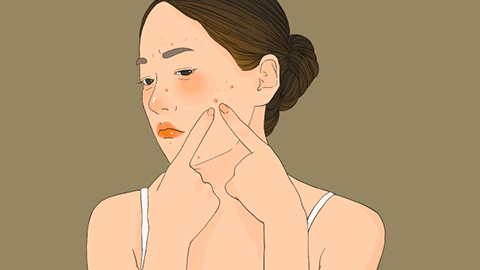What should pregnant women do about excessive dampness?
Generally, excessive dampness in pregnant women may be caused by hormonal changes during pregnancy, reduced physical activity, spleen deficiency with excess dampness, mild edema during pregnancy, or kidney disease during pregnancy. It is recommended to seek timely medical advice, identify the underlying cause, and then improve the condition through general lifestyle adjustments and medication under a doctor's guidance. The detailed analysis is as follows:

1. Hormonal changes during pregnancy: Increased estrogen levels during pregnancy affect water and sodium metabolism in the body, impairing the normal excretion of fluids and leading to fluid retention and excessive dampness. Reduce salt intake in daily diet, avoid pickled foods, consume more water-promoting foods such as winter melon and luffa, and drink an appropriate amount of water daily to promote fluid circulation.
2. Reduced physical activity during pregnancy: Due to physical discomfort and reduced mobility during pregnancy, blood circulation slows down, making it difficult for dampness to be expelled through sweat or urine, leading to its accumulation in the body. Engage in approximately 30 minutes of gentle exercise daily, such as slow walking or prenatal yoga. Avoid prolonged sitting; get up and move for 5 minutes every hour to promote dampness metabolism.
3. Spleen deficiency with excess dampness during pregnancy: The growing fetus compresses the gastrointestinal tract, increasing the burden on the stomach and spleen and weakening their transformation and transportation functions, causing fluid stagnation, manifested as fatigue and sticky bowel movements. Pregnant women should follow medical advice to regulate their condition using medications such as Shenling Baizhu San (Polyporus and Atractylodes Powder), Jianpi Wan (Spleen Strengthening Pills), or Xiangsha Liujun Wan (Fragrant Sand Six Gentlemen Pills).
4. Mild edema during pregnancy: As the gestational age increases, the uterus compresses the inferior vena cava, impeding venous return, causing fluid dampness to accumulate in the lower limbs, resulting in edema and heaviness in the lower limbs. Pregnant women should take medications such as hydrochlorothiazide tablets, spironolactone tablets, or furosemide tablets as directed by a physician to alleviate edema.
5. Kidney disease during pregnancy: Increased workload on the kidneys during pregnancy can lead to kidney disease and impaired kidney function, causing abnormal fluid metabolism, excessive dampness, noticeable edema, and proteinuria. Pregnant women should take medications such as Shenshunning Capsules (Kidney Failure Soothing Capsules), Niaoduqing Granules (Uremia Clearing Granules), or Jinshuibao Capsules (Golden Water Treasure Capsules) under medical supervision to protect kidney function.
Wear loose, breathable cotton clothing daily, maintain a well-ventilated and dry living environment, and avoid damp surroundings. Soak feet in warm water for 10 minutes before bedtime to promote blood circulation in the lower limbs. Comprehensive nursing care can help alleviate excessive dampness and ensure a healthy pregnancy.








